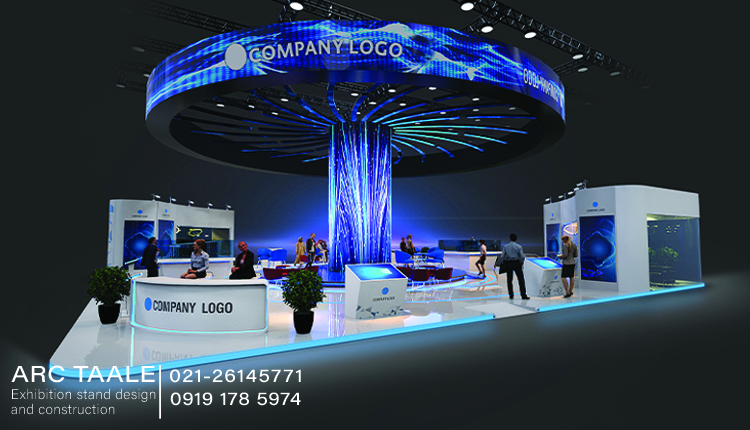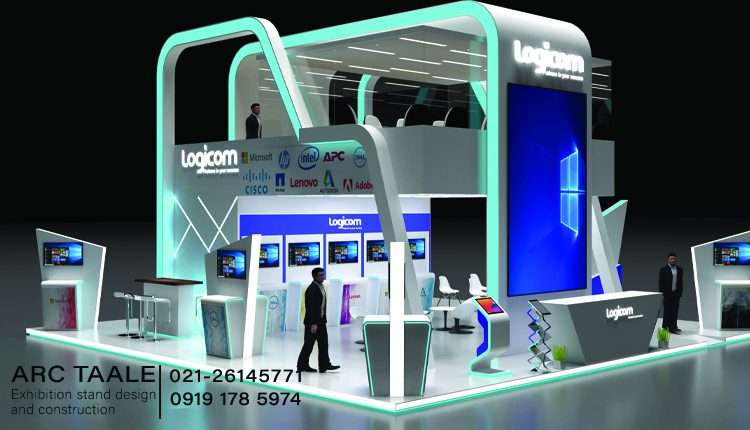Holding exhibitions worldwide provides an extraordinary opportunity to connect with diverse markets, cultures, and industries across the globe. Exhibitions serve as platforms for businesses to showcase their products, services, and innovations to a global audience. From iconic cities like New York, London, and Tokyo to emerging markets in Latin America, Africa, and the Middle East, each destination brings its unique characteristics and business environment.
Organizing exhibitions worldwide allows companies to expand their reach, establish international partnerships, and gain valuable insights into different markets. It requires understanding local customs, regulations, and business practices to ensure successful and impactful events.
Global Impact of Holding Exhibitions Worldwide
Holding exhibitions worldwide involves orchestrating events that transcend geographical boundaries and cultural differences. These exhibitions serve as powerful platforms for knowledge exchange, economic growth, and fostering international collaborations. Here’s an overview of the complexities and significance of holding exhibitions worldwide
Cultural Diversity and Understanding
Exhibitions held worldwide bring together diverse cultures, traditions, and languages. Understanding and respecting the cultural nuances of participating countries are crucial to creating an inclusive and respectful environment for all attendees.
Economic Impact and Business Opportunities
Holding exhibitions worldwide stimulate local economies by attracting international visitors, exhibitors, and investors. They create a marketplace where businesses can showcase their products and services, explore partnerships, and seize new market opportunities, fostering economic growth.
Knowledge Exchange and Innovation
Holding exhibitions worldwide facilitate the exchange of knowledge, ideas, and innovations. Experts, researchers, and industry leaders from different countries converge, leading to collaborative research, technological advancements, and the sharing of best practices across various fields.
Cultural Diplomacy and International Relations
Holding exhibitions worldwide as a platform for cultural diplomacy, fostering goodwill and understanding between nations. They strengthen diplomatic ties, promote mutual respect, and encourage collaboration on global issues, enhancing international relations.
Global Marketing and Brand Visibility
Holding exhibitions worldwide provides businesses with unparalleled visibility. It allows them to showcase their brand, products, and services to a diverse international audience, leading to increased brand recognition and global market penetration.
Environmental Considerations
Holding exhibitions worldwide requires thoughtful consideration of environmental impact. Sustainable practices, eco-friendly materials, and energy-efficient technologies are employed to minimize the carbon footprint, aligning with global efforts toward environmental conservation.
Technological Integration
Modern exhibitions leverage advanced technologies such as virtual reality, live streaming, and interactive displays. These innovations enhance attendee engagement, create immersive experiences, and bridge geographical gaps, ensuring a global audience can participate.
Cross-Industry Collaboration
Holding exhibitions worldwide bring together diverse industries under one roof. This inter-industry collaboration sparks innovation, fosters interdisciplinary partnerships, and enables the development of holistic solutions to global challenges.
Humanitarian and Social Causes
Exhibitions serve as platforms for raising awareness about humanitarian and social issues. Non-profit organizations, NGOs, and social enterprises utilize exhibitions to advocate for their causes, garner support, and drive positive change on a global scale.
Holding exhibitions worldwide is a testament to the interconnectedness of our global community. These events foster collaboration, celebrate diversity, drive innovation, and pave the way for a more inclusive and harmonious world, where ideas and cultures can converge, creating a shared vision for a better future.
The Best Exhibition Manager in Europe
The role of an exhibition manager is pivotal in orchestrating successful events, and Europe boasts an array of talented professionals who stand out for their expertise, innovation, and organizational prowess. The best exhibition manager in Europe embodies a combination of strategic acumen, creativity, and exceptional leadership. Here’s an overview of the qualities and responsibilities that define the best exhibition manager in Europe
Strategic Vision and Planning
The best exhibition manager possesses a keen strategic vision, able to foresee industry trends and align exhibition themes with market demands. They excel in meticulous planning, developing comprehensive strategies that ensure the exhibition’s success.
Exceptional Organizational Skills
Organizational prowess is a hallmark of the best exhibition manager. They proficiently manage logistics, coordinate exhibitors, oversee timelines, and handle intricate details, ensuring a seamless and well-coordinated event from conception to execution.
Suggested article: Holding Exhibitions in Armenia Tips
Innovative Design and Creativity
Creativity is key to captivate attendees. The best exhibition manager leverages innovative design concepts, engaging visuals, and interactive experiences to create an immersive environment that leaves a lasting impression on exhibitors and visitors alike.
Effective Communication and Networking
Strong communication skills are vital. The best exhibition manager excels in articulating the exhibition’s value proposition to exhibitors, sponsors, and attendees. They are adept networkers, fostering relationships that enhance collaboration and participation.
Crisis Management and Adaptability
Exhibitions are dynamic environments where unforeseen challenges can arise. The best exhibition manager remains calm under pressure, swiftly addressing issues and adapting plans to ensure the exhibition’s continuity and success.
The best exhibition manager in Europe stands as a beacon of excellence, elevating exhibitions to unparalleled heights. Their dedication, creativity, and strategic vision shape events that inspire, educate, and foster meaningful connections, leaving a lasting legacy in the European exhibition industry.
How to Find a Talented Exhibition Manager
Selecting a talented exhibition manager is crucial for the success of any event. Their expertise and organizational skills can transform an ordinary exhibition into an extraordinary experience for both exhibitors and attendees. Here’s a comprehensive guide on how to find and identify a talented exhibition manager
Define Your Needs Clearly
Before searching for a manager, clearly define your exhibition’s goals, theme, budget, and timeline. Knowing your requirements helps in finding a manager with the right expertise and specialization for your specific event.
Look for Relevant Experience
An experienced exhibition manager brings valuable insights and networks. Look for candidates with a proven track record in managing exhibitions similar to yours. Experience often translates to a deep understanding of industry dynamics and potential challenges.
Evaluate Organizational and Planning Skills
Assess the candidate’s organizational abilities and planning skills. A talented exhibition manager should be adept at multitasking, managing budgets, coordinating logistics, and overseeing all aspects of event planning with precision.
Creativity and Innovation
Exhibitions that stand out often involve creative concepts and innovative approaches. Look for a manager who can bring fresh ideas to the table, transforming the exhibition space into an engaging and immersive environment.
Strong Communication and Leadership
Effective communication is paramount in event management. A talented manager should possess excellent interpersonal skills, enabling seamless coordination with exhibitors, sponsors, staff, and attendees. Leadership qualities ensure smooth team collaboration.
Network and Industry Connections
A well-connected manager can attract quality exhibitors and sponsors, enhancing the exhibition’s reputation. Evaluate the candidate’s industry connections and networking skills, as these relationships can significantly impact the success of the event.
Problem-Solving Skills
Exhibitions often encounter unforeseen challenges. A talented exhibition manager should be a proactive problem solver, capable of making quick decisions and resolving issues efficiently to ensure the event runs smoothly.
Adaptability and Tech Savvy
The exhibition landscape is constantly evolving, with new technologies and trends shaping attendee expectations. A talented manager stays updated with the latest event technologies, ensuring the incorporation of innovative solutions for a seamless visitor experience.
Check References and Past Clients
Reach out to past clients or employers of the candidate to gather feedback on their performance. Positive references and testimonials provide valuable insights into the manager’s professionalism, reliability, and ability to deliver successful exhibitions.
By carefully evaluating these qualities and conducting thorough interviews, you can find a talented exhibition manager who not only meets your requirements but also elevates your event to new heights, leaving a lasting impact on both exhibitors and attendees.


